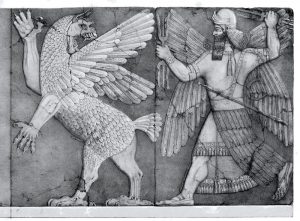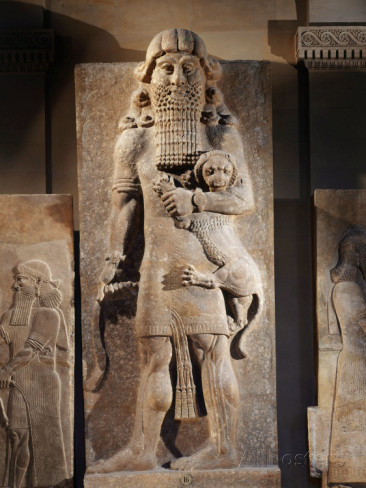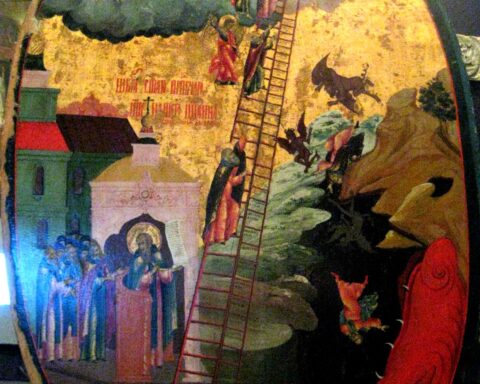
There is something about this epic, a tale so old that we don’t have the full thing, and that is just an echo of even older stories, but still it draws interest and readers every generation.
Written on clay tablets, the earliest evidence of the epic indicates it was composed by Sin-liqe-unninni sometime between 1300 BC and 1000 BC.
Sin-liqe-unninni is also well known for inventing the tongue twister.
That last sentence was a lie. The next isn’t.
Gilgamesh may have been a real king sometime around 2500 B.C. He had a number of stories floating around about him until Sin-liqe-unninni gathered them into one big story. Think of King Arthur for a more modern example.
The story is interesting enough, the action is pretty good for being without the special effects and explosions we’ve come to expect of our mythological stories, the players are more archetypal than I was expecting and there are interesting themes that resound throughout the ages, such as the story of the Great Flood maps closely with the story of Noah’s Ark. Major ideas that have always interested humanity crop up, like honor, friendship, duty to country, and immortality.
What interested me, too, was the story behind the story, as it were. We only have fragments of the story, scattered across tablets found in different cities. The edition I read the translator had culled what he could from a number of different sources and tried to synthesize them in whole. The book had notes on what parts were missing and what came from where. Fascinating. It all flowed pretty well, and he pointed out sections that only recently came to light.
The story also drives home how little humanity has changed since then. What drove us thousands of years ago at the dawn of history still drives us today.
So what’s it about?
Gilgamesh, king of Uruk, being part human and part god, was out of control. He set aside proper leadership in order to have his fun doing whatever he wanted, taking girls when he wanted, making the males work on massive projects as slaves when they weren’t being run ragged by making them compete in sporting events all day. The people of Uruk cried to the gods for help. In response, the gods created the primitive man, Enkidu, to be Gilgamesh’s equal and stop him.
Enkidu, covered in hair and living with the wild animals, is spotted by a trapper. He tells Gilgamesh, who then sends Shamhat, a temple prostitute, to seduce Enkidu. After six days and seven nights of sex, she makes him get a job to start being civilized.
Gilgamesh has a dream about a friend. He’s big into dreams (who isn’t?) and keeps an eye out for his future friend as he goes about his business, which is currently sleeping with brides on their wedding night.
Enkidu hears about this, gets angry, quits his job as night watchman, and travels to the capital. I assume there’s some sort of wedding announcement registry because Enkidu gets to the wedding chamber before Gilgamesh shows up.
Gilgamesh tries to get in but Enkidu stops him. They fight. Finally, after a hard fought battle, Enkidu acknowledges Gilgamesh as being the better fighter. They become friends.
That’s the setup, the first episode. Sounds familiar in a lot of ways, doesn’t it?
After that, they go on a series of adventures, battling monsters and demi-gods, until Enkidu dies and Gilgamesh goes on a futile quest for immortality.
If you want to see the roots of story-telling, start with this. A lot of how we view what makes a story, how to develop characters and plot lines, how to introduce tragedy, a lot stems from here.
More information here: https://infogalactic.com/info/Epic_of_Gilgamesh








